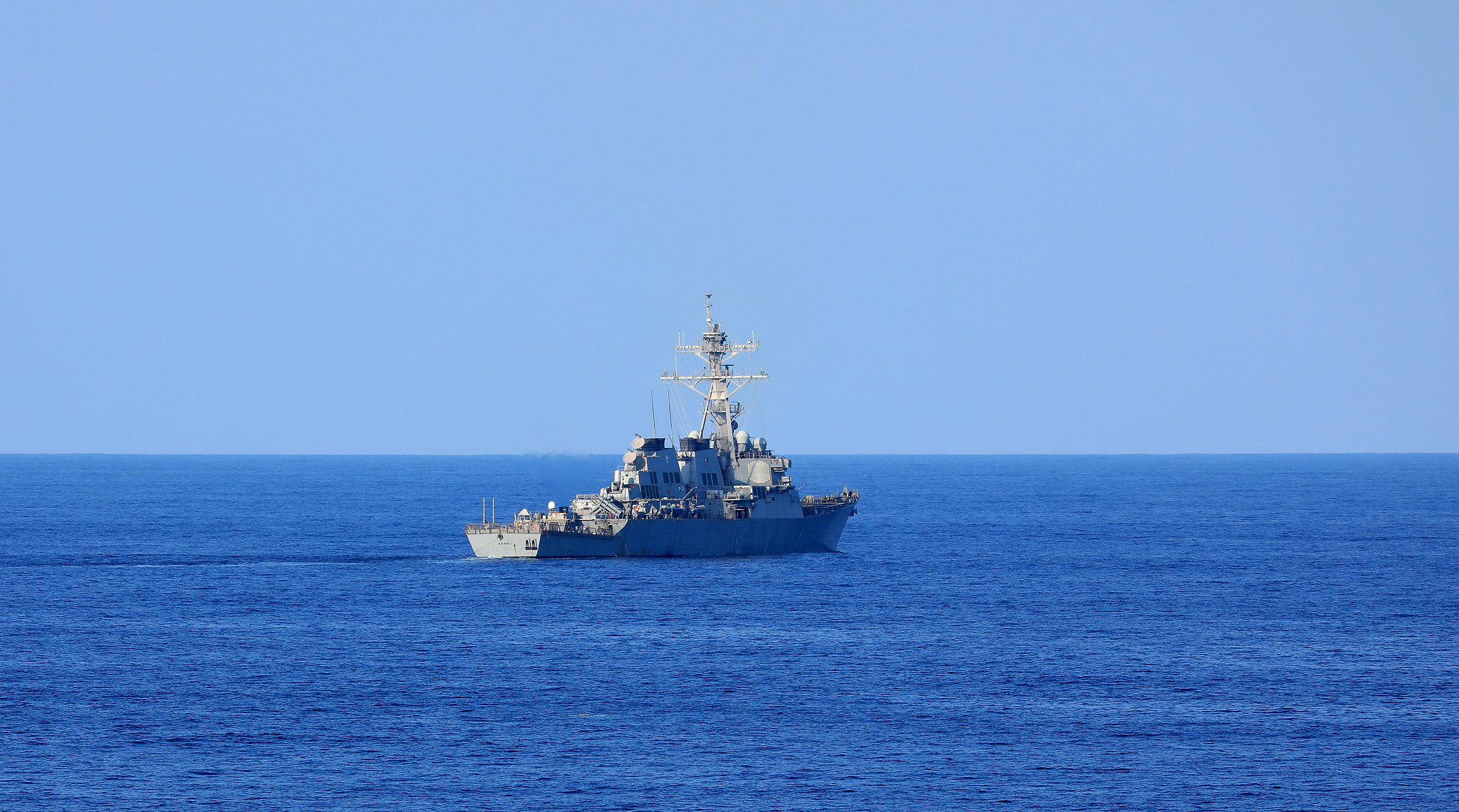
Editor's note: Hamzah Rifaat Hussain is a former visiting fellow at the Stimson Center in Washington and serves as assistant researcher at the Islamabad Policy Research Institute (IPRI) in Pakistan. The article reflects the author's opinions and not necessarily the views of CGTN.
"Friendly and candid" was how the Philippines Foreign Ministry described talks between China and the Philippines last Saturday which was led by Foreign Affairs Acting Undersecretary for Bilateral Relations and ASEAN affairs Elizabeth Buensuceso and Chinese Assistant Foreign Minister Wu Jianghao. The discussions centered on the dynamics of the South China Sea and lingering differences over maritime activities with attempts made to allay concerns and explore diverse perspectives.
The contours of the talks, the areas discussed the stance of neutrality undertaken and future courses of action charted underline why strategic wisdom instead of petty geopolitics in the South China Sea is critical for regional stability. If there are issues, they must be discussed bilaterally without any consideration for camp politics.
President Rodrigo Duterte at the Nikkei Future of Asia Conference refused to be drawn into "big power competition" which is a reference to U.S. maritime presence in the region which is both provocative and endangers stability. He underlined how such rivalries added unnecessary complexities to long-standing security issues which in truth can be easily inflamed if camp politics are pursued.
It is thus, apt for regional countries such as ASEAN member states to discuss South China Sea build-ups, doctrines, maneuvers and issues bilaterally or through regional mechanisms. Both Beijing and Manila already demonstrated such spirit in the sixth meeting of the Bilateral Consultation Mechanism (BCM) constituted by President Duterte and President Xi Jinping back in 2016.
The presence of the mechanisms such as the BCM have often been sidelined by American analysts and mainstream media while demonizing Chinese overtures in the region which is often complemented with viewing the bilateral relationship of the Philippines and China as one of competition and ideological conflicts. This is a flawed calculus. The truth is that camp politics will not resolve South China Sea issue but bilateral mechanisms or regional forums where East Asian stakeholders can talk candidly given their geographical proximity and direct stakes in peace can.

America's Arleigh Burke-class guided-missile destroyer USS Barry (DDG 52) at South China Sea. /VCG
America's Arleigh Burke-class guided-missile destroyer USS Barry (DDG 52) at South China Sea. /VCG
It should come as no surprise that the Department of Foreign Affairs in Manila (DFA) considered dialogue as the only route for easing tensions and understanding each other's divergent positions on matters of concern. China's position on the South China Sea has often been criminally overlooked or labeled as expansionist in the United States despite undeniable facts of the defensive nature of its disparaged Coast Guard Laws and how American maritime activities such as the sailing of the USS Theodore Roosevelt are contributing factors to ensuing tensions.
Such nuances require regional states such as the Philippines to exercise strategic wisdom by shelving misgivings and bridging trust deficits which are allowed to fester in provocative environments. For too long, the standard narrative on tensions in the South China Sea has centered on regional states viewing China with disdain which fits into the fallacies parroted by anti-China elements that Beijing is disrupting free trade and navigation. Discussions through the BCM allow for impartiality to fester instead.
Additionally, the presence of cordiality and stern action against spoilers is critical for establishing deeper understandings between the two countries. President Duterte has barred ministers from making irresponsible comments on China which is a step in the right direction towards allaying concerns and synergizing potential strengths between the two countries. The 2016 arbitration ruling on the South China Sea which favored the Philippines was described by President Duterte as being trash-worthy.
The principal on the South China Sea however, remains the same. Issues between regional states can only be resolved bilaterally or regionally through multilateral forums in the absence of U.S. intervention, pressure tactics, or geopolitics. The region has borne the brunt of Trump-era policies which were laced with animus, bias and reckless China-bashing with the current Biden administration's disposition towards the region and China's role often echoing frail arguments presented by the Taiwanese leadership which negates facts.
Such rivalries pursued negate a fundamental aspect which has been echoed by numerous scholars of conflict studies however regarding regional disputes across the globe. That is that attempts at resolving issues must involve domestic prisms or in the case of the South China Sea, regional or bilateral ones. These talks are a step in the right direction.
(If you want to contribute and have specific expertise, please contact us at opinions@cgtn.com.)

